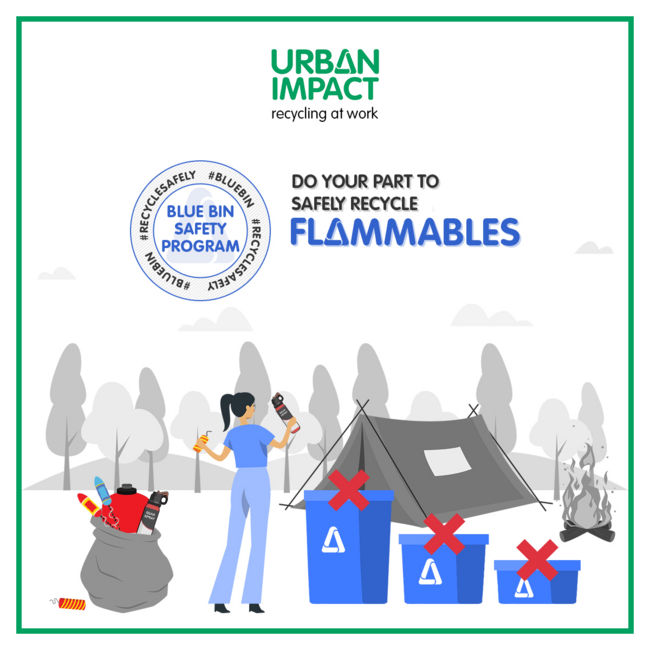- Log in to post comments

Summer may be winding down, but the fire risk remains high. Many of your household and outdoor items can pose a serious and real risk of fire or explosion, especially when items improperly disposed of in your blue bin.
Items that are explosive and hazardous can endanger our recycling facilities, contaminate clean recyclable materials, damage equipment, and put our team at risk of injury.
Please do your part to keep flammable items out of your blue bins. Here are a few reminders of flammable items that should be taken to your local hazardous waste depot
- Propane tanks and butane canisters – These tanks and canisters are pressurized and extremely dangerous, whether they are full or empty. They have caused fires and explosions in recycling trucks and plants.
- What to do? Check if your retailer has a takeback program or bring them to your local hazardous waste depot.
- Aerosol Cans (bug spray, hairspray, cooking oil spray) – Even when these cans are empty, they are still pressurized and may still contain flammable chemicals.
- What to do? If the can does not hiss when you press the nozzle it is likely completely empty and your municipality may accept them in recycling, check your local guidelines. Otherwise, bring these to your local hazardous waste facility.
- Fireworks, flares, and sparklers – Used or unused, these are never safe to put in your blue bin.
- What to do? Contact your local fire department or hazardous waste depot for proper disposal instructions.
- Used BBQ briquettes of fire pit ash – Even after use, briquettes can retain heat for days and reignite in collection vehicles or recycling plants
- What to do? Make sure to cool these completely and dispose of in your regular garbage in a tightly sealed bag.
- Cleaning products, solvents, and fuel containers – Empty containers are still capable of releasing flammable vapours or cause chemical reactions when mixed with other materials.
- What to do? Take to a hazardous waste drop-off depot or check your municipality’s disposal guidelines for household chemicals.
Improperly disposing of these items is dangerous, and more importantly it is completely avoidable. If you’re unsure, please don’t guess. Check with your local waste authority or reach out to us!
Thank you for helping do your part to keep this summer fun and safe!
